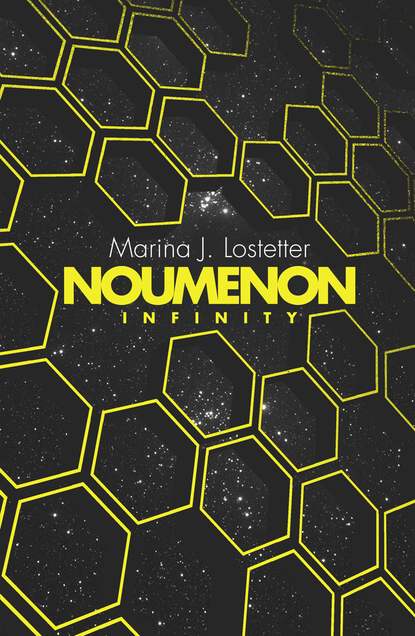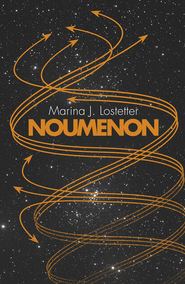По всем вопросам обращайтесь на: info@litportal.ru
(©) 2003-2025.
✖
Noumenon Infinity
Настройки чтения
Размер шрифта
Высота строк
Поля
“Human morality has always been hazy to me. It shifts with the circumstances. Typically, checks and balances are applied, positives and negatives weighed against one another. But not all positives and negatives carry equal measures, as it should be. I do not wish to indicate I believe the board’s thinking incorrect. It is simply different from my own.
“Originally, human servers were believed to be fundamentally immoral, while scheduling end-of-life procedures was not. But when the need for human processing became apparent, the board concluded the two things equal. Now, retirement still equates to passing, but it also signals a transition into a new kind of service. And, just like death, the transition is believed only to be moral if it is final. No teasing retirees with glimpses of their old lives—such an outing is thought to be cruel and unnecessary.”
“And, typically, I would agree,” Caz said. Her face felt hot, her eyes puffy. She didn’t want to cry today. Not when it was supposed to be her day of discovery, of triumph. “But in special cases, like with Doctor Baraka, it’s crueler to keep him under.”
“If he were retired in the traditional manner he would not be present for such an event. He would be deceased,” I.C.C. said. “Which is, of course, the board’s logic: a retiree’s time aboard the convoy has ended, one way or another. That is why he cannot be awakened, that is why we cannot convey information about the outside world to him, even in a dream. And yet, this logic is faulty. Obviously so.
“To deprive one of a deeply personal experience for consistency’s sake does not feel like a moral move to me. But I also understand what kind of gray area such exceptions would create. Should everyone be reawakened for the birthing of a grandchild? For new progress made in their field of expertise? For loved ones’ marriages?”
“I don’t know.” Her vision started to blur slightly, her eyes watering. “I just know that Doctor Baraka should be here.” She inhaled a shaky breath. Don’t cry. Don’t cry. Stop crying.
“You see,” I.C.C. said with a curious tone. “Hazy. Malleable. A plastic morality.”
“It’s the only kind worth having,” she said, not sure she believed it.
I.C.C. did not hedge on the point. “I agree. One cannot function in absolutes—empathy sees to that. But so does narcissism. They are two sides of the same human capacity.”
“You think utter selfishness and utter caring spring from the same plasticity?”
“I believe so, yes. But it’s important to note I said narcissism, which is a different kind of selfishness, born out of self-love, quite different than the selfishness exhibited by animals who have not yet become self-aware.”
Caz rubbed at her face. She felt her equilibrium returning, the sudden swell subsiding. “Why are we philosophizing about morality right now? I need to get home.”
“Edging the discussion toward the intellectual and away from the personal has consistently helped clones in your line maintain their composure. I would have tried a different tactic with other crew members. Is it helping?”
A little laugh escaped her. “You are a wonder, I.C.C. Yes. Thank you.”
They worked for nine months excavating Crater Sixty-four and scouring the rest of the planemo’s surface. The entire convoy’s manpower was thrown behind the project, accomplishing in less than a year what it might have taken the Nataré team decades to accomplish alone. They scouted several other spots across the globe—places with anomalous geology—but nowhere else did they find evidence of alien inhabitation.
And the more they dug, the more one thing became clear: to call what they’d found a city or even a settlement was a stretch. The structures they found intact were minimal. And there was nary any evidence of biological activity. No garbage, most notably. If there was one thing Earth archaeologists had come to rely on as never-wavering evidence of civilization, it was the concept of “the dump.” Biological things consumed, and consumption inevitably produced waste. But there were no filled-in pits, no openly strewn excrement. Perhaps they’d incinerated everything, but if so the teams had yet to identify ashes.
Luckily, because of the frigidness of the dark world, there was no decay. Whatever microbes the Nataré might have brought with them from their home world couldn’t survive in such cold. The only destruction on the surface came from ice and outer space.
Which meant when they tested the bricks that formed a few structures’ inner walls, they were in for a surprise.
“It’s just local dirt bound with platelets and fibrin,” Caznal’s husband, Diego Santibar the Twelfth, said. He’d invited her into the chem lab to show her what he’d discovered. “Similar to what makes blood coagulate. But it’s been stripped of any genetic code. No way to tell if the basis came from Nataré biology, an alien cow, or a buttercup. Regardless, here, instead of forming a scab, it’s making bricks. Look at this.”
He slid his arms into the gloves of the nearest glove box. Inside lay a black-and-green slab. Gently, he took a corner and spritzed it with an eyedropper. It dissolved immediately, leaving loose grit behind.
“What’s in that?” she asked, bending down beside him. She adjusted the goggles on her face, hating the way they cut into the bridge of her nose.
“Water,” he said. “From our taps, nothing special. All of the inner walls in your structures were dissolvable in water.”
“Brilliant. No need to take building materials with you if you can mold dust with ease, and scrap it just as fast. I’m starting to think we’ve found a staging ground. I mean, the lack of apparent infrastructure, the size, the transient nature of these materials—it points to more of a worker’s camp than a permanent outpost.”
“But what were they working on?”
“Something that’s gone now. That would explain our missing mass. Our missing gravitons.”
“What about those supercycler towers? How many are there now?”
“Twenty.”
“Could those account for the gravitational difference? If they were drawing in that many gravitons, perhaps there was seepage? Maybe they created a false well that altered the maps?”
“I hadn’t thought of that,” she admitted. “And we haven’t found any clues as to what they needed that many gravitons for. If all of their buildings used the same hydrogen wiring as the Nest, that would account for a few of the towers. But not twenty.”
She rubbed her eyes. The chem lab was bright, the lights harsh and true white. “I need to get back to analyzing the new items we found. Some malformed block metal.”
“Still nothing like the Babbage Engine on the Nest? No computers, no archives?”
“Nothing. They cleaned up real good when they left. It’s spotless, almost like a crime scene. They rolled up all but the sidewalks.”
“Isn’t that strange?”
She shrugged. “If someone handed an alien a fork, a zither, and a hookah, how accurate do you think their assumptions would be? I feel like that’s the level we’re working on. We have nothing, we know nothing. Our only real hope of understanding them is in those maps. If we don’t find the keys here, we just have to prep for the next stop.”
There were seven more X’s in all on their alien map. The farthest away was a gravitational mega cluster—was it the Nataré home system?
That’s what many were speculating, although it wasn’t the only theory. There were so many possibilities now that they knew evidence was out there, that the maps were real!
He looked concerned then, like she’d just said something that undermined his entire world view. “Caz, you’re assuming …”
She cocked her head, wary of his tone. “What?”
“You’re assuming there is a next stop. The board committed to coming here, but if there’s nothing related to the Web, no instructions, no hint at its engineering, origins, or purpose, then … You know it all has to come back to LQ Pyx to be seen as worthy of convoy attention.”
He can’t be serious.
She pushed her goggles onto her forehead. He was about to protest, but she barreled forward. “That was before all this,” she said excitedly. “That was when we weren’t sure there would be anything to find. But look at this.” She stabbed the glove box, leaving a fingerprint on the otherwise pristine surface. “So simple, so basic, yet brilliant in its design and range of application. When we find a real settlement, a place they truly lived and died, think of what we could uncover. There’s no way the board is going to turn down the opportunity to chase after an entire civilization’s worth of learning in favor of a single construction project.”
His expression didn’t change. Something unsettling snaked its way through her stomach, but she held fast to the evidence before her.
It would take them centuries to hit all of the X’s, and they would have to travel light-years upon light-years in the opposite direction of the Web.
But why should that matter? What was one alien artifact to an entire alien history?
This was bigger, better, surely the board—hell, every last crew member—could see that.
Dr. Baraka saw it, long before anyone else.
With a sigh, Diego removed his hands from the glovebox. “You know the official mission statement doesn’t mention the Nest, or the Nataré.”
Because those points were kept secret from Earth, to ensure they wouldn’t interfere. “So?”
“So, you might find that means something to some people. That they don’t see the omission as subterfuge so much as emphasis—on what’s really important.”
“You know what’s important?” she asked firmly.
Другие электронные книги автора Marina J. Lostetter
Noumenon




 0
0






